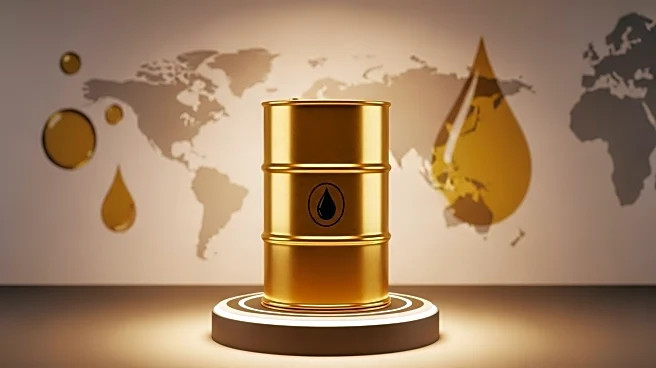What is the story about?
What's Happening?
Saudi Arabia's strategy of leading production increases in OPEC+ has resulted in lower oil prices, which some view as a gift to President Trump. The strategy aims to keep fuel prices low in the U.S., potentially easing the impact of tariffs and affecting Russian energy export revenues. However, lower oil prices have raised concerns in the U.S. shale industry, which faces challenges from reduced profitability. The situation is further complicated by shifts in global oil trade, with U.S. exports to China declining and being redirected to Europe.
Why It's Important?
The Saudi-led production strategy has significant implications for global oil markets and U.S. energy policy. Lower oil prices benefit consumers but pose challenges for U.S. producers, particularly in the shale industry. The geopolitical dynamics, including the impact on Russian revenues and the U.S.-China trade relationship, add complexity to the situation. The strategy's effects on fuel prices and energy exports could influence U.S. economic and foreign policy decisions.
What's Next?
The ongoing production increases by OPEC+ may continue to impact global oil prices and market dynamics. The U.S. shale industry may need to adapt to the changing environment, potentially through cost reductions or strategic shifts. The geopolitical implications, including the impact on U.S.-Russia relations and trade with China, will likely remain a focus for policymakers.
Beyond the Headlines
The situation highlights the interconnectedness of global energy markets and the influence of geopolitical strategies on economic outcomes. The balance between consumer benefits and producer challenges underscores the complexity of energy policy decisions. The broader implications for international relations and trade dynamics add layers to the analysis.
















